
The Darrell McClain show
Independent media that won't reinforce tribalism. We have one Planet; nobody's leaving, so let’s reason together!! Darrell McClain is a Military veteran with an abnormal interest in politics, economics, religion, philosophy, science, and literature. He's the author of Faith and the Ballot: A Christian's Guide to Voting, Unity, and Witness in Divided Times. Darrell is a certified Counselor. He focuses primarily on relationships, grief, addiction, and PTSD. He was born and raised in Jacksonville, FL, and went to Edward H white High School, where he wrestled under Coach Jermy Smith and The Late Brian Gilbert. He was a team wrestling captain, District champion, and an NHSCA All-American in freestyle Wrestling. He received a wrestling scholarship from Waldorf University in Forest City, Iowa. After a short period, he decided he no longer wanted to cut weight, effectively ending his college wrestling journey. Darrell McClain is an Ordained Pastor under the Universal Life Church and remains in good standing, as well as a Minister with American Marriage Ministries. He's a Believer in The Doctrines of Grace, Also Known as Calvinism. He joined the United States Navy in 2008 and was A Master at Arms (military police officer). He was awarded several medals while on active duty, including an Expeditionary Combat Medal, a Global War on Terror Medal, a National Defense Medal, a Korean Defense Medal, and multiple Navy Achievement Medals. While in the Navy, he also served as the assistant wrestling coach at Robert E. Lee High School. He's a Black Belt in Brazilian Jiu-Jitsu under 6th-degree black belt Gustavo Machado. Darrell Trains At Gustavo Machado Norfolk under the 4th-degree black belt and Former Marine Professor Mark Sausser. He studied psychology at American Military University and criminal justice at ECPI University.
The Darrell McClain show
Tariffs, Trade Wars, And Broken Promises
A farm-town promise met a ledger full of losses. We open with the hard math of tariffs and trade wars: higher equipment costs for growers, soybean sales to China evaporating overnight, and a puzzling turn to importing Argentinian beef just as America’s cattle herd hits historic lows. Add four packers controlling most of the beef market and record profits at the top, and it’s fair to ask whether “America First” ever reached the people it named.
Then we step onto the hardwood, where legalized betting meets its predictable shadow. A head coach and a starting guard now face federal charges tied to illegal gambling and alleged match fixing with mafia links. We connect the dots between sports books in your pocket and the oldest playbook in organized crime. Why did we become a culture that loves the antihero? From The Godfather to prestige TV, our fascination with the villain has a cost: when corruption looks like drama, outrage dulls and lines blur.
That thread pulls through government policy as well. When states bankroll budgets with lotteries and tax gambling revenue, the mandate to restrain harm flips into a search for more of it. We argue that systems built on unearned gain corrode communities, and the NBA scandal is a mirror: you cannot feed a vice and expect virtue to grow. The conversation turns pastoral and urgent on Gaza, challenging church silence with the historic call to speak for the oppressed and to prefer costly truth over comfortable neutrality.
We also unpack a Senate vote rebuking unilateral tariffs, a constitutional reminder that Congress shares trade powers—and that tariffs act like taxes paid at the register. To rebuild a vocabulary for sanity, we draw on Robert George’s account of the human person as a rational animal, capable of truth-seeking and moral choice, set against modern habits that reduce reason to serving desire. Closing with new data showing a sharp decline in trans and nonbinary identification among students, we hold two commitments at once: biology is stubborn, and every person bears unshakable dignity.
If this resonated, follow the show, share it with a friend, and leave a review telling us where you think integrity should draw the line next. Your voice helps others find conversations that take truth and compassion seriously.
First, uh you know, uh we created uh tariffs. Farmers are taking it on the tune with higher costs, just like everybody listening to this. So number one, the tariffs themselves. Um then he starts a trade war with China and soybean from number two is the trade war leading soybean sales to go to zero. Farmers are taking young children. Uh China was the largest purchaser of U.S. soybeans, and literally overnight they stopped buying soybeans, leaving bins full and farmers going bankrupt. And now, because he likes the president of Argentina, or at least that was the basis that he gave, he's going to not only he gave them$40 billion, as a matter of fact, the first$20 billion went out, and the first thing Argentina did was lower a tax and sell soybeans to China, and now he turns around and says I'm going to buy their beef. So it's really, you know, uh many of the ranchers, uh, we have uh folks on our staff and in our network farmers that raise cattle. And you know, it's it's a betrayal. Uh they had expected uh the prices have been going up. They're finally making some money after about a decade of losses. Uh our cattle herd is the smallest it's been in since the 50s. And uh they're finally now have a chance to recover and put more puffers in uh to be breeding stock uh for cows. And the president says, Oh, beef's too high at the grocery store, so I'm gonna import more beef. He's just got it wrong. It won't work. There's no guarantee that the big properties, four companies control 80% of all the beef in this country. So you go to the grocery store, it's an illusion that there's that much choice in that beef. Uh fore companies control the beef in this country, and there's nothing the president's doing that to money by the buyers. They'll get cheaper meat, and nothing guarantees the consumer will see a like lower price. As a matter of fact, we've been making record profits uh during this time of high beef prices. You know, they can stand to lower some of that, continue to pay the farmer what they need, the rancher, and uh and and uh provide the consumer with a fair market price in the grocery store.
SPEAKER_00:So listen, he's giving us a list, right? And I just want you to analyze each of these elements based on Trump's claim that he would be about America first. Make America great again. Number one, tariffs. What do the tariffs do? Well, the tariffs immediately increase costs to the farmers of both equipment and in some cases source of materials. And then they have to pass those costs on. That makes what they are selling less attractive. That's not America first. Trump says, Well, we're collecting all of this tariff money. Yes, you're collecting the tariff money from American companies, not America first. Number two, trade war with China with regard to the effect on soybeans. Soybean sales to China have gone to zero for American farmers. China's fine. China has made a deal with a number of other countries, hilariously, including Argentina. So China's got their soybean supply. The countries selling China the soybeans, they're pretty happy, but it is the American soybean farmers that lose. That's not America first. And then number three, Trump says, well, we're gonna start bringing in Argentinian beef. Is that good for American ranchers? It is not. So we should really judge Trump by the promises he made. You all know I'm from Argentina. Argentina has been in an economic calamity for at least 35 years, and every president um has uh has been unable to uh resolve that or even remotely improve it. But if we are to judge Trump, right, we should judge the Argentinian leadership for the promises they make and whether they keep them. But if we are to judge Trump for his claim that he is America first and it's all about the United States of America, well, none of these things are good for the United States of America. They're not good for American business, they're not good for American farmers, they're not good for American consumers. China's fine. China's charted a new path, and they're they're going to be able to weather this with relatively little impact. It's in the United States that the problems are being caused. We've been focused on farmers because the farmers have been willing to speak out. It is not the only industry that is being economically crushed by Donald Trump, but it is one that is being significantly crushed. And importantly, the other reason we talk about there's really three reasons we're talking about farmers. Number one, more and more farmers are going on the record to tell us what is happening and why it's happening. Number two, farmers relate to food. This is something we can all identify with and relate to. Uh, and number three, um, this happened in the first term. And so it's another one of these you fool me once. Oh, I wish do I have it? Do I have the Bush fool me once? Oh, every time I look for it, I can't find it. Wait a second. Wait a second. Oh no, that's Trump saying China. Okay, I don't have it. Anyway, that thing Bush said, you fool me once. You fool me twice, you can't get fooled again. Anyway, this happened in the in the first term. So that's another reason why it's highly relevant. We expected it to happen, and he's doing the exact same thing.
SPEAKER_02:So we have to talk about something that I normally do not even talk about on the show. We're gonna talk about basketball a little bit. We're gonna talk about sports, and I have to get to the NBA's worst nightmare. Just walk right through the front door wearing handcuffs. Chansey Willoughs, head coach of the Portland Trailblazers, and uh Terry Rosier of the Miami Heat are now facing federal charges. The rap sheet is illegal gambling, rigged poker games, and yes, match fixing tied to some of New York's most infamous mafia families. Now let's think about that for a second. These aren't French figures. This isn't some low-level assistant stats at the end of the bitch. This is a head coach, a starting guard, names kids look up to, names fans trust, and they are now tied up in a plot that sounds like a story that is uh basically could could could be on HBO. And this is the collision that you get when you marry pro sports to legalize gambling. Integrity was actually the first casualty. Once the league decided to make betting part of its business model, you didn't have to be a prophet to see where this was going to be ending up. The cash flow is actually too big, the temptations are too strong, the system is too massive, and the mafia the mafia they've been waiting for this moment since the ink dried on Adam Silver's 2014 op-ed calling for sports betting to be legalized. Now the Bible actually does warn us that the love of money is the root of all kinds of evil, and we're watching that play out at the center of the court now. What was once the joy of competition is now a racket, a rig table, a con job on the fans, and the arrogance is that anyone thought they could regulate human greed. You can't, because you can't regulate sinfulness. You can only feed it or starve it. The NBA chose to feed it. But let me zoom out here. Because beyond the headlines, beyond the FBI press conference, there's another layer here, and that is Americans' obsession with organized crime. The mafia is both real and myth. It's blood, it's bullets in the alley, and it's box office goal, the Godfather, the Goodfellas, the Sopranos. We've actually turned these crime families into a pop culture royalty. And here's the paradox. We hate what they do, but we love watching them as they do it on screen. We romanticize the cogs that they keep, the loyalty, the suits, the cigars, the order, while forgetting the broken bodies left in the wake. Why do we care so much? I I'm gonna postulate this. There's two reasons. First, because organized crime requires that very word organization. It's evil dressed up with discipline. And that fascinates us as human beings. To run a criminal empire actually takes uh hierarchy. It takes rules, it takes loyalty. Ironically, the same thing it takes to run a legitimate business. The mafia just applies that order to the vice instead of the virtue. Second, we are drawn to crime because it brushes against the edge of what we know we shouldn't touch. Evil has that type of allure. Watching the bad guy is more exciting when they're clever, when they're ruthless, when they almost get away with it. Deep down we like the drama. But as a Christian, we have to understand that fascination with evil is a dangerous indulgence because if you stare too long into it, it actually starts to stare right back at you. The FBI actually once denied the mafia even existed. Then they came they they came to the realization they had to admit that it did, especially when the 1960s came around, and the Senate hearings, the indictments, the takedowns, the families then had to go underground, but the mafia never left, and here they are again in 2025, sitting courtside in the MBA's latest scandal. So the question isn't just why does organized crime exist, it is why do we keep inviting it back in. Through gambling, through state lotteries, through the constant chase for easy money. Every time we loosen the reins, the mob doesn't just sneak in, they strut right through the front door.
SPEAKER_01:Here's a strange thing about this NBA scandal. The headlines say mafia, and instead of pure outrage, half the country thinks of movie quotes. Because we don't just fear villains, we admire them, even celebrate them. Think about it. Every era has its anti-her. The mafia boss in The Godfather, Tony Soprano, Walter Whitecooking Meth in his RV. Even the ones meant for kids Lord Boldemore and Harry Potter, Darth Vader and Star Wars end up with their own fan clubs. We cosplay as the villains at Comic Con. We print their faces on t-shirts. Somewhere along the line, evil stopped being just the bad guy and started becoming the star. It makes sense at least psychologically. The villain is powerful, fearless, willing to do what the hero won't. The anti-hero bends the rules, cheats the system, and whines at least for a while. That's compelling to watch because deep down we all feel the weight of rules we wish we could break. But here's the danger when entertainment makes the villain charismatic, our moral compass starts to wobble. We stop rooting for justice and we start rooting for cleverness. The mob boss becomes the philosopher, the drug lord becomes the underdog, the dark lord becomes relatable, and that shift doesn't just stay on the screen, it bleeds into culture. So when we hear the Machias back in the NBA, it doesn't just register as corruption, it registers as drama. Part of us leans in fascinated, almost entertained, because we've been trained to love the anti-her. Evil is always dressed up attractively, that's what temptation is. Sin rarely shows up looking boring. It shows up looking powerful, thrilling, maybe even sympathetic. That's why our culture loves the mob story. That's why we can't quit watching Darth Vader force joke his way across the galaxy. But here's the warning if we let ourselves get too comfortable with evil as entertainment, eventually we'll start treating it as normal in real life. And that's what's happening right now. The mafia isn't just a Netflix binget's fixing games, rigging tables, and praying on the weak in real time. These are fictional villains, they are flesh and blood, and they just showed up courtside. So let's bring this home. We've talked about the NBA scandal. We've talked about the mafia. We've talked about our cultural obsession with villains, whether it's Darth Vader, Walter White, or Tony Soprano. Now here's the uncomfortable truth. Our fascination can turn into complicity. Because evil doesn't stay confined to fiction. The anti-hero we cheer for on screen teaches us to look at real corruption with curiosity instead of outrage. And that's how you end up with headlines like these organized crime families woven into the NBA, and instead of a gut level, this is unacceptable, people say. Wow, this is just like the movies. That's a dangerous place for a society to live age scripture warns that sin rarely shows up looking ugly. It comes dressed as desirable. Adam and Eve didn't eat the fruit because it looked rotten, they ate it because it looked good. That's temptation's power. It makes evil look fascinating. The Christian worldview insists that work is good, labor is honorable, reward for effort is just what it condemns is greed, exploitation, and the love of unearned gain. Gambling, organized crime, corruption, these are all systems built on the promise of fast money without honest work. And when a culture baptizes those systems, whether through state lotteries, casinos, or legalized sports, and let's not forget, government has a God-given mandate. Romans 13 says rulers are appointed to punish the evildoer and reward the good. Government is supposed to restrain sin, not monetize it. But that's exactly what's happening when states run lotteries and cash in on gambling revenue. They're preying on the weak. They're making their budgets off addiction. That is not just its exploitation with a tax stamp on it. Betting Get isn't just tolerating sin. It's profiting from it. This NBA story isn't just about Chauncey Billlops or Terry Rozier. It's a mirror. It shows us the logical end of a culture that loves its villains more than its heroes, that trades integrity for entertainment, that chooses quick profit over long-term good, the hard truth. You can't glamorize organized crime for fifty years and film, normalize gambling as harmless fun, and then act shocked when the mafia shows up in your sports league. We invited them. We made room for them, and now they're here. So where does that leave us? It leaves us with a sobering reminder. If you build systems that reward sin, you will reap corruption. If you glamorize evil long enough, you will tolerate it in real life. We can enjoy a story about a dark lord or a mob boss's fiction, but we'd better keep our moral compass sharp. Because the moment we stop being outraged by real corruption, we've already lost more than the game we've lost our sense of right and wrong. And when that happens, the mafia doesn't just own the poker table. They own us. The Church's Silence in Gaza, a moral failure and prophetic shame, Darrell McLean Jewel, 28, 28, 25, let me speak plainly. The Church's silence on Gaza isn't just disappointing, it's a sin. And not just any sin, but the kind that wreaks of complicity, cowardice, and a betrayal of everything Christ taught us about justice, mercy, and truth. When bombs fall on children, when hospitals are turned to rubble, when entire families are buried beneath the dust of drone strikes and the pulpits remain quiet, that silence speaks volumes. And what it says is chilling, your lives do not matter enough for us to risk our comfort. This silence is deafening and deadly. Where is the church that marched for civil rights? Where is the church that stood against apartheid? Where is the church that once claimed to be the voice of the voiceless? Today, while Gaza weeps, that church is whispering behind closed doors, issuing vague statements about both sides, and hiding behind the cloak of neutrality. But neutrality in the face of genocide is not Christ-like. It is cowardly. Jesus never played neutral with injustice. He flipped tables. He called out corruption. He touched the untouchable. He healed the broken and condemned the violent systems that broke them in the first place. And you want to tell me Jesus would look at Gaza and say, let's stay out of politics. This isn't politics. This is people. The gospel demands more you cannot preach Christ crucified while ignoring children crucified by missiles. You cannot claim to follow the Prince of Peace and stay silent while war crimes unfold on your watch. You cannot sing about grace on Sunday and ignore genocide on Monday. I'm not here to massage your comfort. I'm here to remind you of your calling. Because if the church cannot speak for the oppressed, then what good is the church? The moral cost of silence, some say we don't want to divide the congregation. Let me tell you something. If your unity depends on ignoring the suffering of others, it was never built on Christ to begin with. Others say we don't know enough about the situation. Then re listen. There are Palestinian Christians crying out for help your brothers and sisters in Christ, and you won't even learn their names. Every day the church stays silent, it loses a piece of its witness. And the world is watching. The youth are watching. The oppressed are watching, and they are not fooled. A prophetic wake-up call, if you have a pulpit, use it. If you have a platform, speak up. If you have a conscience, let it burn with righteous anger. Because silence is not love. Silence is not peace. Silence is betrayal. And let me be crystal clear, God is not silent. God is with the children in Gaza. God is with the mothers who bury their sons. God is with the oppressed, not with the powerful who bomb them. So ask yourself, church, where are you standing? Because if you're not standing with the oppressed, then you're standing against the gospel. Conclusion. Let the church be the church again. I don't say this to condemn, but to awaken. There is still time to find your voice. There is still time to repent, not just in prayer, but in action. There is still time to be the church the world desperately needs. But time is running out, and the blood of Gaza is crying out from the ground. Will the church listen? Or will it keep its deadly silence? The choice is yours.
SPEAKER_02:Article written by Darome McLean in July of 2025.
SPEAKER_01:Alright. Alright, a listener hit me with this one. The Senate just passed a bill to rescind tariffs on Brazilian imports. Five Republicans crossed over and voted yes. The House likely won't touch it. And even if it did, the president says he'd veto. So what message are lawmakers sending this administration? Good question. And it cuts right to the heart of how politics and economics stands together. The Senate's move is symbolic but sharp. It passed with a bipartisan majority, including names like Mitch McConnell, Susan Collins, Lisa Murkowski, Rand Paul, and Tom Tillys. That's not the radical fringe that seasoned players. By voting to rescind tariffs on Brazil, they weren't just voting on soybeans, ethanol, or steel. They were voting on the principle of whether the president can declare a national emergency and unilaterally tax imports like he's swatting flies. This was a constitutional flare gun. Hey, trade authority belongs to Congress too. So what message did they send? 1. We don't like being cut out. Tariffs aren't supposed to be a one-man decision. You're hitting American businesses and consumers in the pocketbook. Tarifs sound tough on paper, protect the worker, punish foreign competition, but in reality, they raise costs on U.S. farmers, car makers, and anyone buying imported goods. 3. Even your own party isn't sold. When McConnell himself signs onto a rebuke, that's not just noise. That's institutional muscle saying. Don't push us too far. This isn't the first time Congress has stepped in on trade fights. Back in 1930, Herbert Hoover signed the Smoot Holly Tariff Act, thinking it would shield American workers during the Depression. Instead, it kicked off a global trade war and worsened the downturn. Congress eventually learned, over reliance on tariffs burns more bridges than it builds factories. Fast forward to Ronald Reaganister. Free trade himself he still used tariffs here and there, but even he had to defend them in front of skeptical lawmakers who saw the economic fallout. Same with George W. Bush in 2002. His steel tariffs lasted just 21 months before the World Trade Organization and Congress forced him to roll them back. So today's Senate vote fits that old pattern. Presidents swing the tariff hammer, and eventually Congress says, ease up your breaking the furniture. So let's land the plane. The message here isn't that tariffs are dead. Both parties have constituents who like them farmers, manufacturers, unions, the messages about power. Don't sideline Congress. Don't pretend emergency powers are a trade policy. And for ordinary people, remember this tariffs are attacks you don't see on your W-2, but you feel it every time you shop. Lawmakers are reminding the White House that even tough on trade politics has a cost, and voters can only stomach so much before the blowback hits home. So the Senate just told the President, we'll tolerate your fire, but not if you burn down the kitchen. And that's what this little Brazil vote really was a smoke alarm going off in the middle of the night.
SPEAKER_02:When it comes to conservative thought, Robert George, Professor Robert George to be exact, is one of the people I regularly go to. He is, if not the most brilliant, one of the most brilliant uh thinkers on conservative thought. So on our blast from the intellectual past, we're gonna go to Professor Robert George on the question of what is a human being in our blast from the intellectual past today, Professor Robert George.
SPEAKER_05:What is a human being? A human being is a rational creature. A rational animal. We are animals. Excuse me, I'm not a biologist.
SPEAKER_04:I I can't answer that question. Keep going because I think this is an important.
SPEAKER_05:Yeah, we're we're rational animals. Uh that's our nature. Uh we are creatures with a rational uh nature. Um we are not God, we're not gods, and yet we possess an immaterial power or set of powers that is quite literally godlike. And those are the powers of reason and freedom, the power to envisage states of affairs that do not yet exist, to grasp the intelligible point, the value of bringing them into existence, and then to be able to act freely on the reasons we've grasped to bring that state of affairs into existence. Not acting on mere impulse or instinct like a brute animal, but acting rationally. This, I think, is the essence of the biblical teaching affirmed by Jews and Christians, that human beings, man, although fashioned from the mere dust of the earth, material stuff that will die and dissolve, is nevertheless made in the very image and likeness of the divine creator and ruler of all that is. That's what it means to be a human being. And as rational creatures, Eric, we are truth seekers. Our fulfillment depends on, in part, there are other things as well, but a key element of our fulfillment is the pursuit of truth, the affirmation of truth, the revision of our thinking when we discover that we're in error. And then, of course, the effort to live a life authentically in line with what we best judge, fallible though we may be, to be the truth. The truth is all about being in touch with reality. Whether it is natural reality, what we do in the natural sciences, social reality, we study that in the social sciences, um, spiritual reality, what we study in theology and uh and religion. It means being in touch with the way things really are, not living with illusions, not living with wishful thinking, but being in touch with the way things actually are.
SPEAKER_04:It's interesting that you bring that up because uh in the last few years I've been talking a lot about where we are in the culture and how um it seems to me that things have gotten so crazy that if you're on team reality, as I put it, we're on the same team. We don't have to agree on everything, but if you agree that there's something called reality and you want to live or try to live in accordance with it, we're on the same team. We can have a conversation. There are many people that are hostile to reality, and so they want to live in a fantasy, or they want to say that there is no reality and I will subjectively create my own reality, it's like my own truth, whatever. And it doesn't matter whether it's consonant with anything external to me, you know, which takes us back, I guess, to Rousseau or to the the idea that what I feel trumps anything external and that there is no reality beyond my feelings. Where did that idea come in? Because in the book you talk about faith and reason, and I want to talk about faith and reason, but where did that come into history, this idea that you know my sense of things is potentially more important than anything else?
SPEAKER_05:Well, I'll say a word about that, but can I pause just to commend my old friend Richard Dawkins? Because Dawkins recently uh in social media has taken a lot of heat for insisting that we cannot define ourselves or others as being male or female, depending on their or anybody else's feelings. That our sex or so-called gender is a matter of objective reality, a matter of truth, not my truth or your truth. It doesn't vary with how you feel or how you self-identify or anything like that. And Dawkins has taken a lot of heat for doing that, but he stood up for it because he believes that it's true. This is an example for me of working with anybody who's willing to speak the truth, especially those who will speak it courageously and at a cost. Uh, we don't have to agree on everything. Dawkins and I have lots of disagreements about religion and ethics and other things, but I really do commend him for speaking out courageously when it's difficult, on the question of gender ideology. And I welcome him uh to the movement to try to return to a kind of sensible understanding of sex and the relationship between the uh sexes. And he is actually a biologist.
SPEAKER_04:He is actually a biologist. So maybe he can answer that that uh question that you were asking me earlier. Which is a human being and we need to get him get him on the phone later.
SPEAKER_05:Um But you asked me about some of where these ideas uh come in, yeah. Um As I said, uh, when we talked on your uh radio show, when it especially when it comes to bad things and bad ideas, once you start tracing them back, the next thing you know, you're in the Garden of Eden and there's the serpent and uh and and Eve. Uh so I don't want to go all the way uh back there. But you mentioned Rousseau. Obviously, Rousseau was a founding father of the Romantic movement. And that's a very important moment uh in our history. We're talking about the 18th century, we're talking about Europe, obviously, uh, in which the idea begins to gain credibility that um we we get at the truth of things when we uh throw off the so-called shackles of uh historic civilization, Christian civilization, biblical, Judeo-Christian civilization, and uh we live as if we were noble savages because human beings are naturally good, and therefore we can trust our instincts, um, our feelings, our uh emotions. It's a very, very bad idea. It leads to catastrophic results. It leads to the French Revolution, the beginning with the French Revolution, with the terror, with the guillotine. Uh so it's a very, very bad thing, but that's a key moment. But um we can't, uh those of us, especially like myself, who uh uh uh give a lot of credit to Anglo-American thinking, to English and American thinking, we can't just blame those continentals. Uh these ideas in a more polite uh form uh are entering into Anglo-American thought, English thought in the first instance, British thought, uh, also in the 18th century and even earlier. I'm thinking of David Hume, who uh famously declares that reason is and not only to be the slave of the passions and may pretend to no office other than to serve and obey them. That's the idea that we can't actually adjudicate rationally, we can't reason about what to want. Our wants will be brute givens, given by our desires. All we can reason about is how to get to what we want, how more efficiently to get what we want. Now look at the implications of that. Hitler wants to murder a lot of Jews and Slavs and others. Mother Teresa wants to rescue people on the care for them on the streets of Calcutta. According to the Humean view, not that Hume himself embraced any such thing, but his own, the implications of his view are is that Hitler can't reason, or we can't reason, about the genuine truthfulness or desirability of what Hitler wants. He wants what he wants, and that's all that can be said. All reason can do is to help him more efficiently to to achieve his ends. We can't judge Mother Teresa's wants to be superior or inferior. All reason can do is tell Mother Teresa how to be more efficient in caring for people on the streets of Calcutta. And it doesn't, as I say, even in the English tradition, in the uh English Anglophone tradition, begin with with Hume. Um a couple of generations earlier, Thomas Hobbes had written that the thoughts are to the desires, as scouts and spies to range abroad and find the way to the thing desired. But that's not really proscriptive, is it? He's just describing what he sees in the prescriptive in this sense. He's indicating what is possible and what is not possible. And his argument is all that is possible is to reason about how to get what you want. It's not possible to reason about what to want. Okay, so that so it's a rejection of two streams, the two streams that really formed the West. One stream, of course, the biblical tradition. Jerusalem. The other stream, the classical tradition from Greece and Rome, Rome, figures like Plato and Aristotle and Cicero, who are nowhere near the idea that all reason can do is tell us how to get what we want. Both of those traditions, the Judeo-Christian tradition and the classical tradition, are fundamentally interested in trying to adjudicate between our wants in a way that's rational, getting at the truth is is what Mother Teresa wants the right thing to want, or is what Hitler wants the right thing to want. They both can't be okay.
SPEAKER_04:And by the way, just for the for the sake of the conversation, I'm going with Mother Teresa. It's interesting how cynical that view is. That, you know, when you talk about Hume and Hobbes, maybe you know enough about them to say whether they were so cynical.
SPEAKER_05:Uh Hobbes, I think I can explain somewhat. Uh he's writing in the context and wake of the Great Civil War. Uh the British Civil War, English. And, you know, it was catastrophic. And uh the carnage was profound. And human beings looked to him to creatures who would do this to each other looked to him basically like just brute animals driven by desire. And I think the cynicism grew out of that experience. It's parallel, Herrick, to the cynicism, I think, of um Oliver Wendell Holmes, the great American jurist. Um profoundly cynical person. Uh great jurist, uh, but a profoundly cynical person. His cynicism grew out of his experience with the American Civil War, serving in the Union forces in that war, seeing the carnage. It was really horrific. Uh and wars can take people in different directions. The experience of war can take people in different directions. It can inspire in our hearts a deep desire to do the right thing so that some something like this will never happen again. In others, it will lead to this kind of cynicism. And I fear in Hobbes, as in Holmes, it led to that cynicism.
SPEAKER_04:I uh some months ago interviewed um a Plato scholar and was talking to him about how it's fascinating to me as a Christian to think that um uh people like uh Plato or or Socrates or Cicero that they would have somehow intuitively grasped that it's possible to reason your way in the direction of something called truth. In other words, that they were that they had an innate sense that there there was something like truth and that we could reason toward that. And I was asking him, and I'll ask you now, what do you suppose it is? Because we can talk about the cynicism of uh Oliver Wendell Holmes or or of Hobbes, but what do you suppose it would be that would make uh somebody in let's say Socrates have this innate sense that um the unexamined life is not worth living, as we say uh at almost every Socrates event, and that it's worth examining life, it's worth thinking deeply, it's worth trying to reason our way towards something. I mean, I would say that that comes from whether we know it or not, that we're made in God's image. But it's fascinating to me that these folks, centuries before Christ, had that sense, and they of course had no uh you know conversations with the with the Hebrews. Uh they weren't aware of the writings of Moses.
SPEAKER_05:Let me begin with two points in response, Eric. Uh, first is that this is not a new view. Uh people have been asking the same question going all the way back to early Christianity. Second, you're in very good company because some of the great early Christian thinkers asked themselves the question, how could Plato have known what he knew? And there were two bits of speculation, both of which were ultimately rejected, but they were at least toyed with in the minds of early Christian thinkers. One was, could Plato have had somehow access to the Hebrew revelation? Did he get a scroll from somewhere? And then the second speculation, also in the end dismissed, not embraced, was that God had given him a private revelation of some of the essential content of the Hebrew uh uh scriptures. Now, both are rejected, but the fact that they were entertained at all uh means that your question occurred to them uh as well. Now, my answer, I think, is very much in line with uh your answer, and here we can go to another great Jewish thinker, Saint Paul. Um, and Saint Paul tells us uh in his letter to the Romans that um there is a law written on the hearts even of the Gentiles. Who are the Gentiles? They're the people who don't have the law of Moses. There's a law written on the hearts of the Gentiles. It's not written on scrolls like the like the Bible, uh written on the hearts of the Gentiles that is sufficient for them to be held accountable. It enables them to know basic right from wrong. So a great figure like Socrates, uh like Plato, uh I would add uh Aristotle or Cicero, uh, I think is someone who is deeply exploring with a good heart, with a good intention, that law written on the heart. That law we call these days the natural law. Martin Luther King invokes it in his famous letter from the Birmingham jail, when he's criticized for breaking the law, which he did, breaking the human law, breaking the positive law of the state. How can he justify that? Especially when they said to him, his critics said to him, Dr. King, you yourself called for obedience to law when the Supreme Court handed down its decision in Brown versus Board of Education, ordering the desegregation of the schools in the southern states, and when there was resistance from the white majority, you called for obedience to law, but now you're breaking the law. And King says, well, that's because there are two types of law. There's the human law, but then there's the higher law. There are two types of law in another sense: there's unjust law and there's just law. An unjust law is a human law that is in violation of the natural law, the moral law, the law written on the hearts. That's what an unjust law is. A just law is a law that's in line with the natural law, in line with the moral law. A law that's in line with the moral law uplifts what he called in the letter the human personality. In other contexts, he called the human spirit. By contrast, an unjust law, a law that's out of whack with the natural law, degrades the human being, both the victim of the wrongdoing and the wrongdoer himself. Well, that's pretty good. And we can understand that law, at least to some extent, at least in principle, as Plato shows, as Aristotle shows, as Ciceroso shows, even if we don't have the revealed truth of the scripture.
SPEAKER_04:Um, yeah, I think that that's uh that's exactly right. It is uh it's fascinating to me that the ancients, uh all the way back in antiquity, got this, and that many moderns who've had the benefit of living, you know, um, many centuries uh after the New Testament was written could get to a point where they would would argue with that.
SPEAKER_05:It does undermine the progressive view of history, doesn't it? Yes. That we keep getting better and better and better and smarter and smarter and smarter. Things are a lot more complicated than uh the neo-agelians uh would have us believe, who think that history moves forward in a positive direction and we're always making progress. No, we're not. We can make progress in some domains, like in the domain of science, and yet regress, lose knowledge when it comes to moral truth or spiritual truth.
SPEAKER_01:Friends, sometimes the news is more than just headlines, it's a mirror. And this week, the mirror is showing something we weren't supposed to see. A new report from Eric Kaufman, a politics professor in England, backed by surveys from the Center for Heterodox Social Science and published in UN Heard, tells us something stunning. The rapid rise in transgender and queer identification among young Americans has just as rapidly collapsed. In 2022 and 2023, nearly 7% of undergraduates identified as transgender or non-binary. Today, barely 3.6%. At Phillips Andover Academy, an elite high school in Massachusetts, 9.2% of students once said they were neither male nor female. Today it's 3%. Brown University, one of the most progressive IVs, saw the number of non-binary students drop from 5% to 2.6%. That's not a drift. That's not slow correction. That's a cliff. And here's the key word Kaufman uses to describe it fashion. Now, fashion is a dangerous word in this conversation, because we've been told again and again that gender identity is innate, immutable, locked in like DNA. But if that's true, how do you explain numbers collapsing in two years? DNA doesn't shift by semester. Peer culture does. Fashion explains why emo bang swept through high schools in the 2000s, why every man in 1995 wore a baggy suit, and why nobody does now. Fashion explains why mullets died and heaven help us why they came back. But unlike clothes, these fashions get written onto flesh. Chest binders. Or mon surgeries. So when Kaufman says fashions are changing, that should both sober us and alert us. Sober us because this isn't just harmless dress up. Alert USB because even the secular left is now admitting identity can be a trend, not just a truth. What do sociologists call it? Social contagion. Ideas spread like coals. Especially among teenagers. You've seen it. One friend buys Doc Martin, suddenly the whole group stomps around like they're in a nineties grunge video. Now apply that same dynamic to identity. And the numbers back it up the rise in transgender identification was overwhelmingly among young women, adolescent girls. Clusters of friends subtly coming out together. Not because chromosomes had changed overnight, but because peer pressure and belonging carried weight. This is where Kaufman is most direct. The whole non-binary wave behaves exactly like a trend cycle. It rises fast. It fades fast, and then out of nowhere, here comes Richard Dawkins. The famed atheist, the scourge of religion. He's never been gentle with Christians, but on this, he is crystal clear. He says there is no non-binary in nature. None. Cells don't lie. You've got sperm or egg, male or female. Those are the reproductive categories that drive evolution. Full stop. The chance of a third option existing, he writes, is precisely zero. He mocks the idea that declaring I'm a woman could transform a man's body the way magic turns pumpkins into carriages. His words sting, but his point is simple. Biology is stubborn. The human imagination can stretch, but it can't rewrite chromosomes.now, zoom out. Because Kaufman isn't the first to notice fashion's rise and fall. In the 1920s, divorce was scandalous. By the 1970s it was common. In the 1950s, nearly all Americans opposed same-sex relationships. By the 2010, support for same-sex marriage was mainstream. In each case you saw peer shifts, vibe shifts, cultural contagion. But the transgender way was different. It was faster. It was more extreme. And it reached into the most basic reality of human existence, whether we are male or female. That's why its decline is so sharp. When you tamper with bedrock, you can only suspend disbelief so long before crack showed out here's where I want to be careful, because it's easy to treat this as a scorecard. Our side is winning. Their side is losing. That's too shallow. Every percentage point in those surveys represents real people, young people who were swept up in something confusing, maybe painful, and for some, life-altering. This is not the time, for I told you so. This is the time for dignity. Christian theology gives us a backbone and a heart. The backbone says, yes, male and female, he created them. Those categories are not social fads, they're creation truths. But the heart says, every person is made in God's image, even the one struggling with identity. We tell the truth, but we never strip dignity. Why did Gen Z swing so hard and then snap back? My theory is this. For a teenager or a college student, figuring out who you are as male or female is an existential question. It's not peripheral like am I Democrat or Republican. It's central. So when culture offered an escape hatch, you don't have to be male or female at all, a lot of young people tried it. But biology is loud. Reality presses back. And slowly, kids discovered the promise didn't deliver. That's why Kaufman's fashion language feels so devastating to the activists. Because if it's fashion, then it's not destiny. Kaufman calls this post progressive. In other words, the train of history doesn't always run one way. The left has long believed history inevitably bends toward their causes. Divorce, abortion, gay rights, same-sex marriage at all look like a straight line, leftward. But the sudden collapse in transgender identification, that throws off the script. It doesn't mean the culture war is over, but it does mean momentum can change. And when momentum changes, opportunities open for truth telling, for compassion, and for resetting cultural sanity. But hear me on this hour responsibility isn't to gloat. Our responsibility is to care for those who got caught in the storm. That means if a young person in your life tried on a non-binary identity, don't treat them as a punchline. Treat them as a person. If someone carries scars or medical choices, they don't need your score. They need your support. If the culture moves past this fashion, let's not leave behind the kids who wore it yesterday. The Christian task is harder than just saying we were right. The Christian task is showing grace to those who were wrong or who were hurt because Christ did that for us. So what do we take away? Fashion fades. Truth remains. Baggy suits come and go, Imo bangs rise and fall. Identities constructed in a moment of pure contagion can collapse in two years. But male and female made in the image of God that endures. The numbers from Kaufman, the biology from Dawkins, they don't erase the need for dignity. They underscore it. Because people caught in a fading fashion still carry eternal worth. So as this cultural fashion collapses, let's be the ones who hold both sides of the truth. God's design is real, and every soul is valuable. Truth without love crushes. Love without truth eceps. Only together can they heal. And that, friends, is where we have to stand.
Podcasts we love
Check out these other fine podcasts recommended by us, not an algorithm.

The LUNSB Show with T-Bone and ChickBrew
Tony Knuckles
Over opinionated with Josh Scott
Josh scott
The Jamie Kilstein Podcast
Jamie Kilstein
The Back Row with Jamie Kilstein
Jamie Kilstein
Your Calvinist Podcast with Keith Foskey
Keith Foskey
BJJ Mental Models
Steve Kwan
Renewing Your Mind
Ligonier Ministries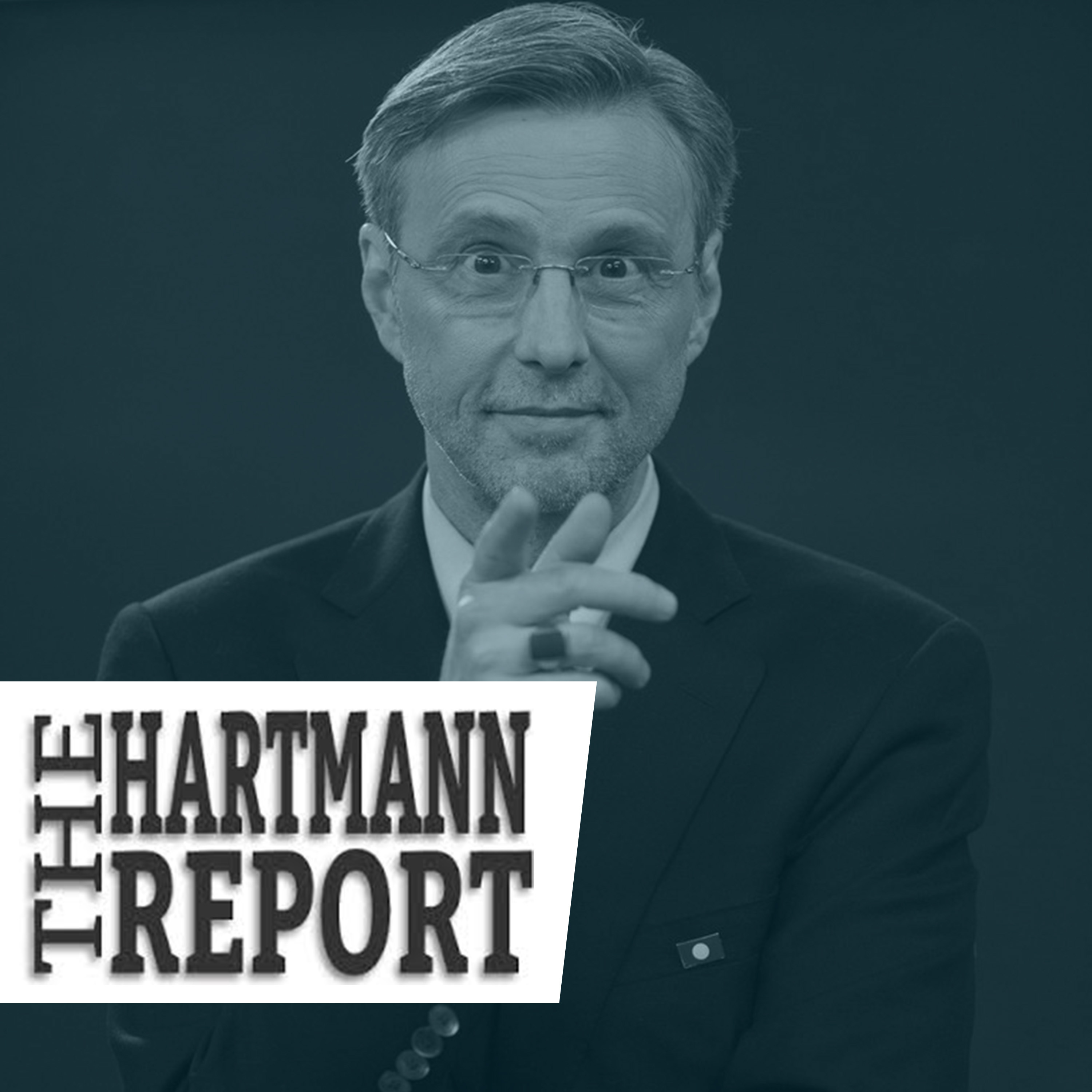
The Hartmann Report
Thom Hartmann
The Glenn Show
Glenn Loury
#RolandMartinUnfiltered
Roland S. Martin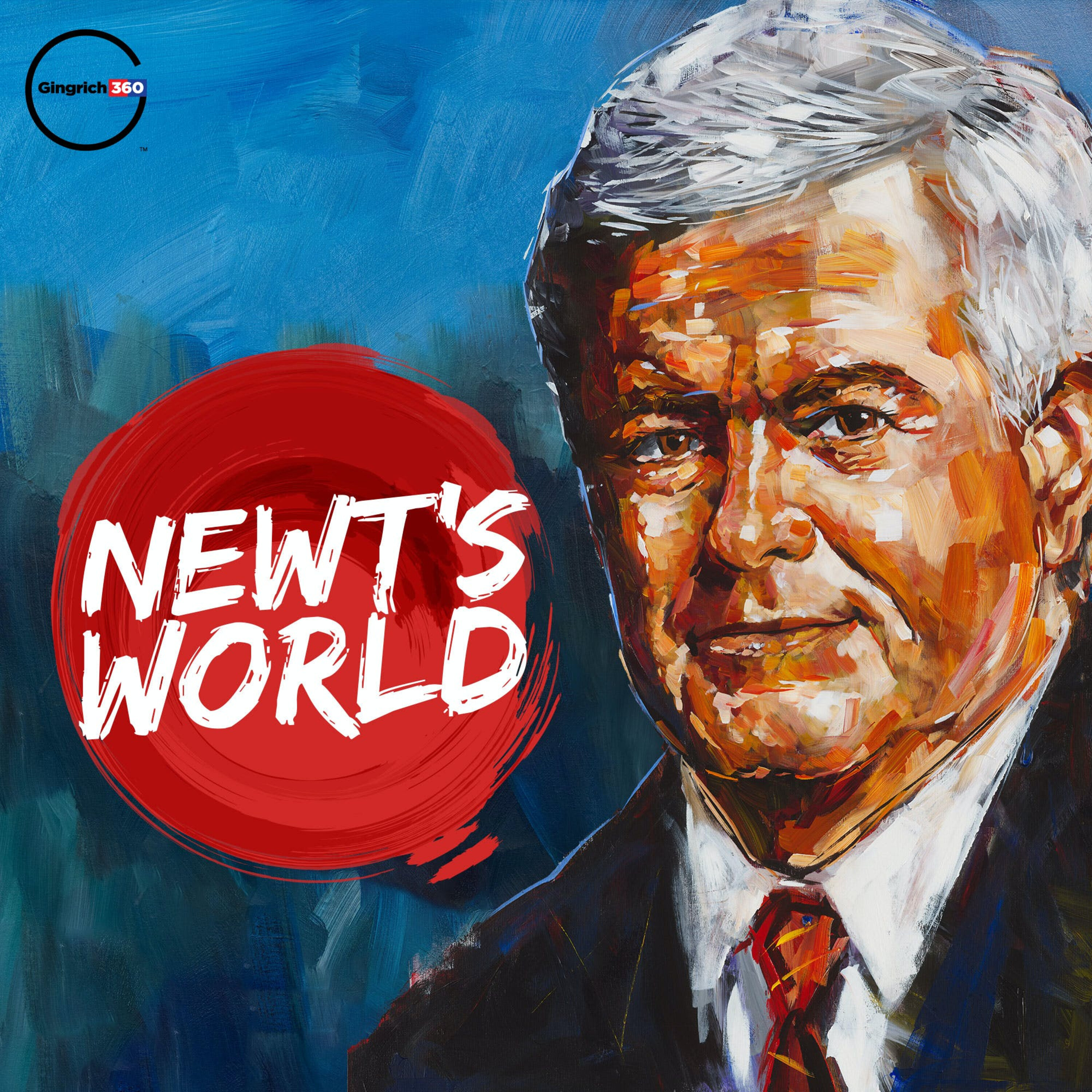
Newt's World
Gingrich 360
Pod Save America
Crooked Media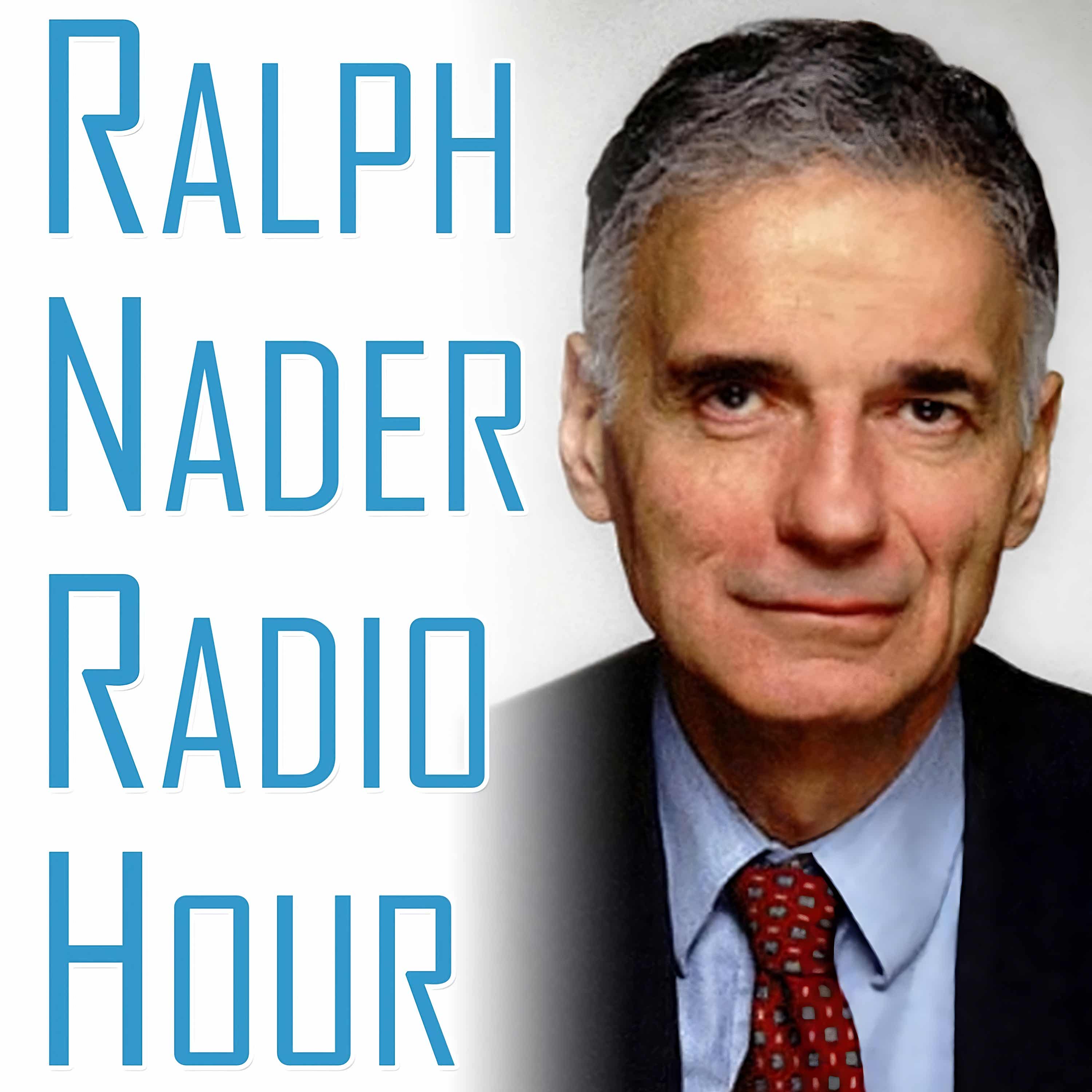
Ralph Nader Radio Hour
Ralph Nader
Bannon`s War Room
WarRoom.org
Bannon’s War Room
dan fleuette
The Young Turks
TYT Network
The Beat with Ari Melber
Ari Melber, MS NOW
The Damage Report with John Iadarola
TYT Network
The Majority Report with Sam Seder
Sam Seder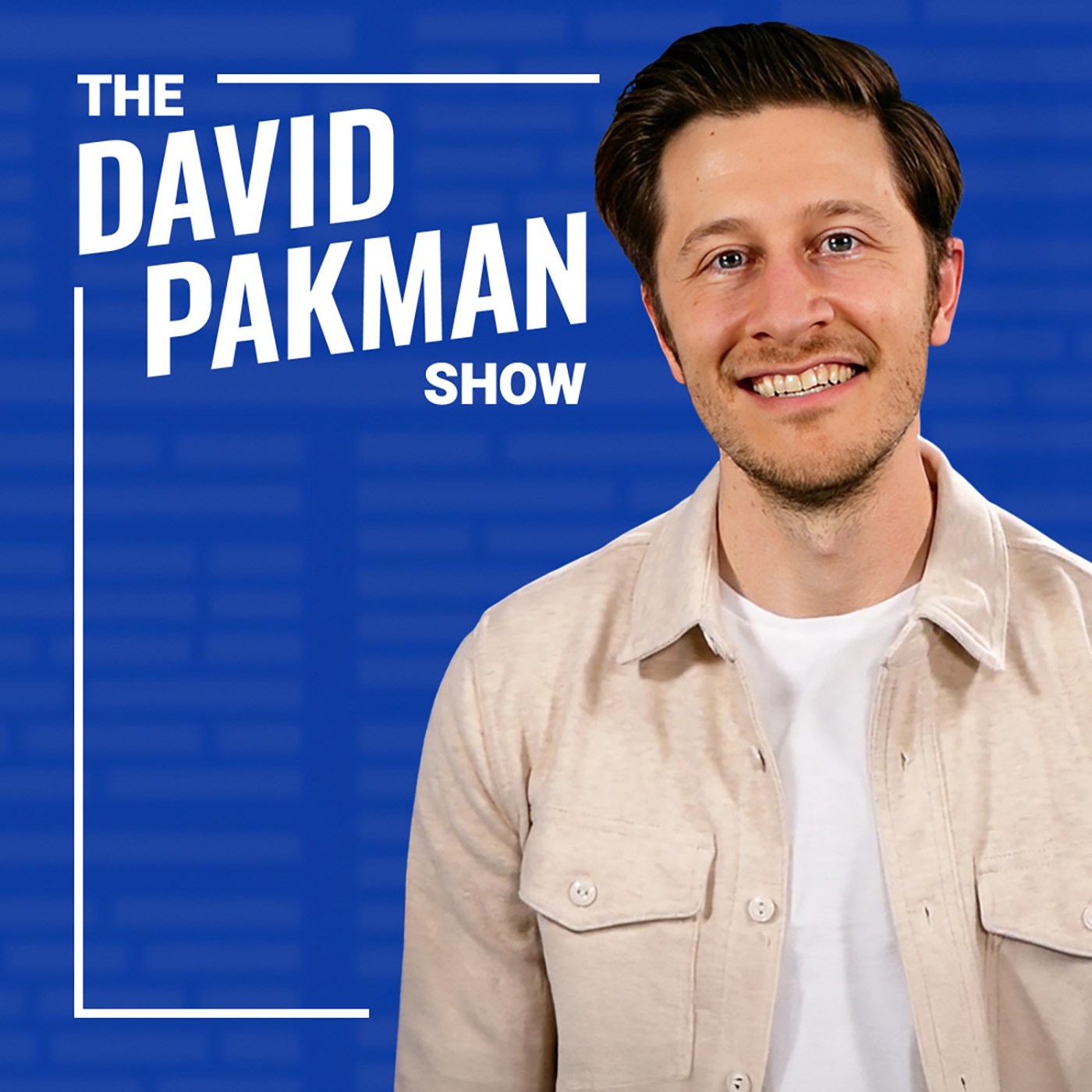
The David Pakman Show
David PakmanGet A Grip with Kendall Reusing
Kendall Reusing
Ultimately with R.C. Sproul
Ligonier Ministries
Grace to You: Radio Podcast
John MacArthur
The Briefing with Albert Mohler
R. Albert Mohler, Jr.
StarTalk Radio
Neil deGrasse Tyson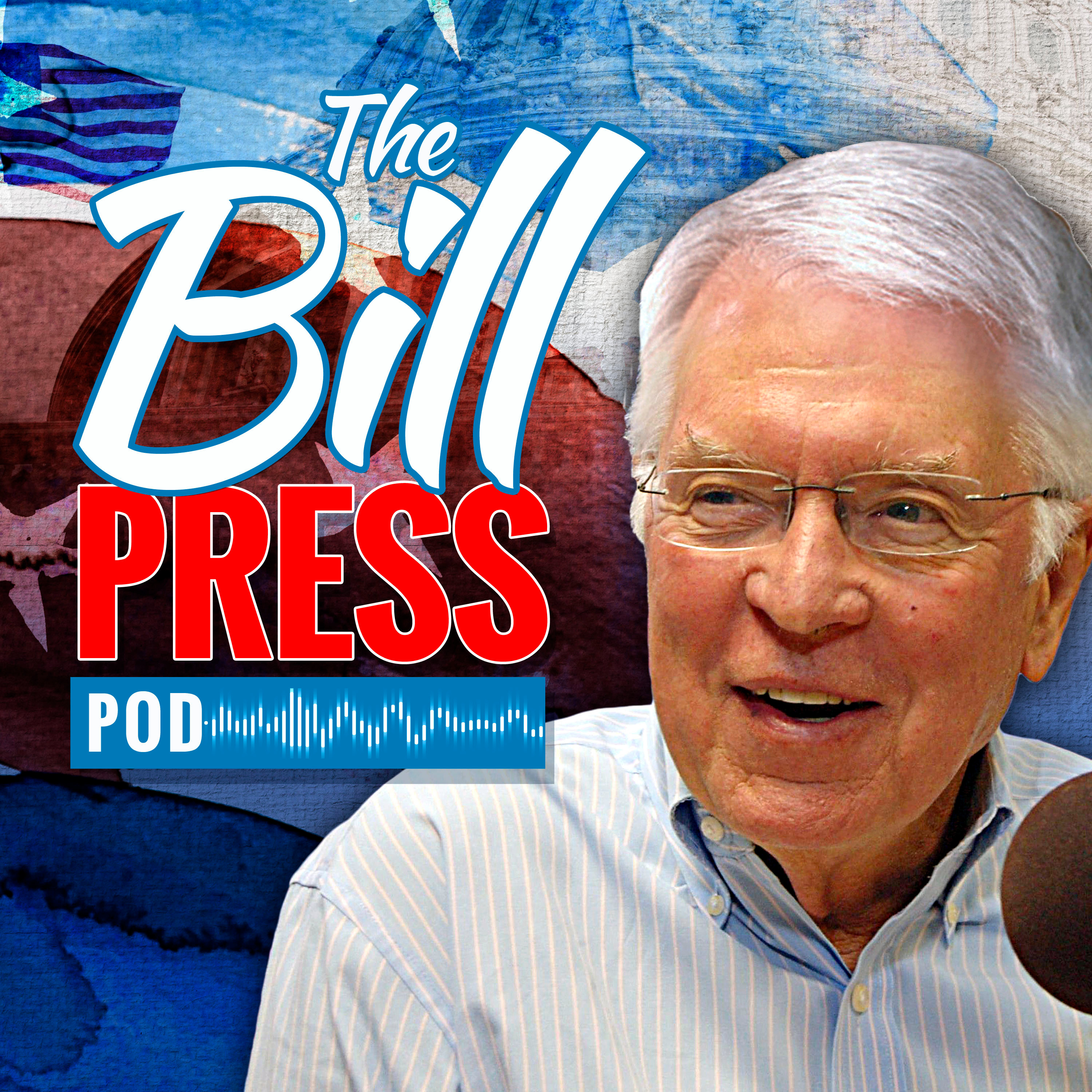
The Bill Press Pod
BP Pods
Ask Pastor John
Desiring God
The Weekly Show with Jon Stewart
Comedy Central
Ask Ligonier
Ligonier Ministries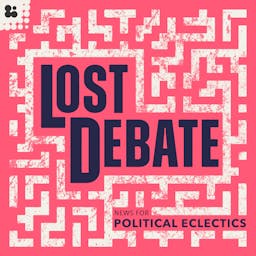
Lost Debate
The Branch
Coffee-Time-Again
Dale Hutchinson
5 Minutes in Church History with Stephen Nichols
Ligonier Ministries
The Ezra Klein Show
New York Times Opinion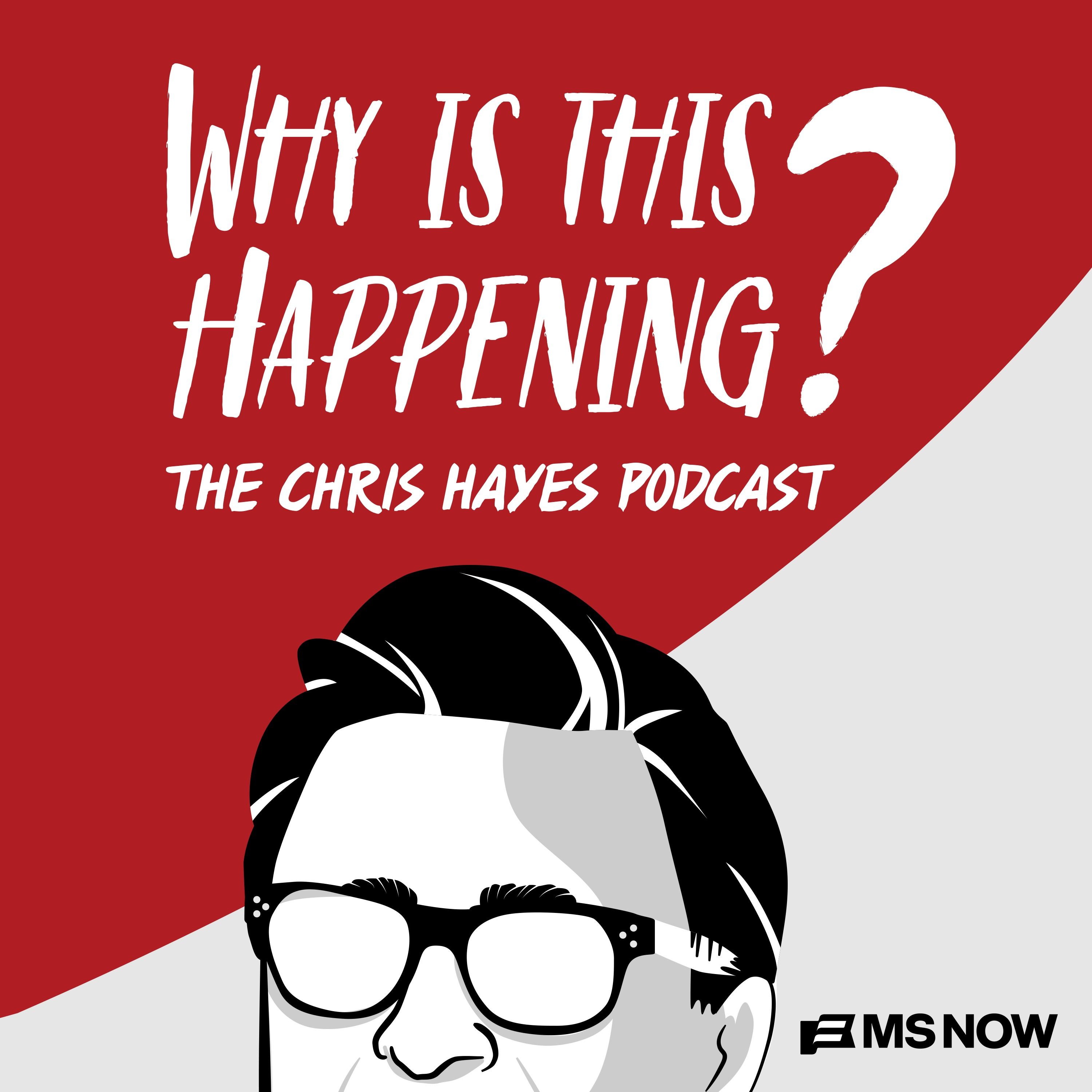
Why Is This Happening? The Chris Hayes Podcast
MS NOW, Chris Hayes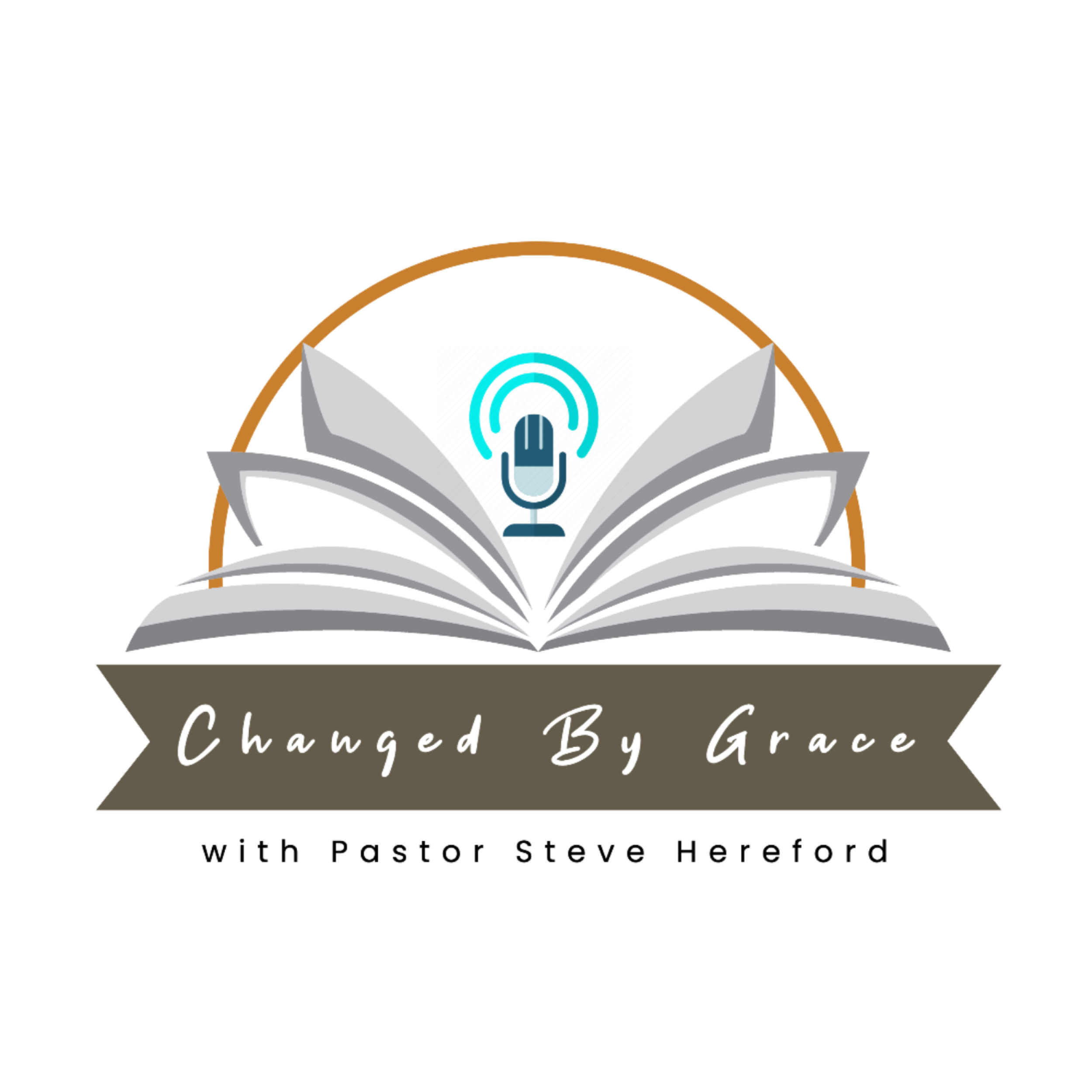
Changed By Grace
PodPoint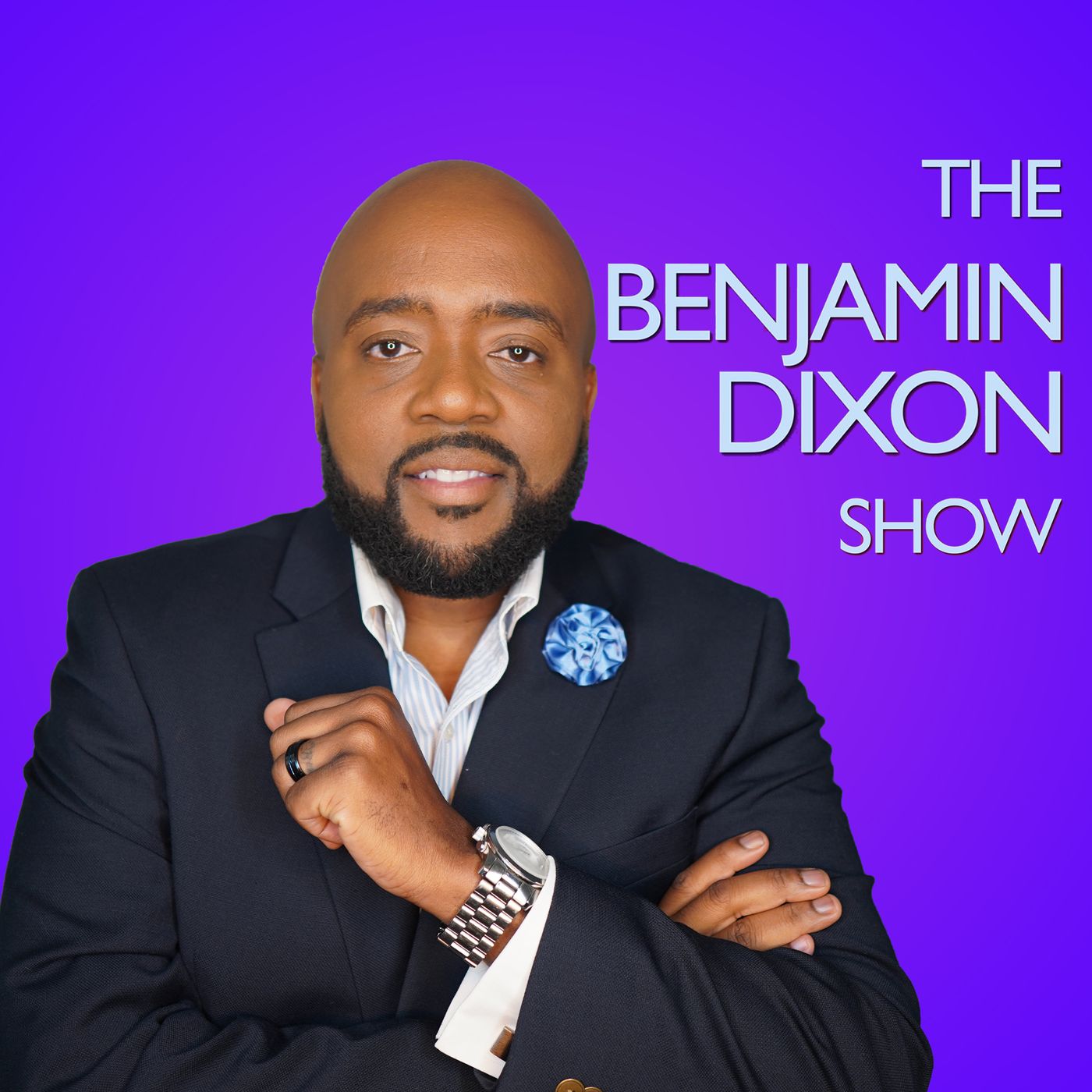
The Benjamin Dixon Show
The Benjamin Dixon Show
Thinking in Public with Albert Mohler
R. Albert Mohler, Jr.
Who Killed JFK?
iHeartPodcastsThe MacArthur Center Podcast
The Master's Seminary
Jean Jacques Machado : No Gi Required
Jay Zeballos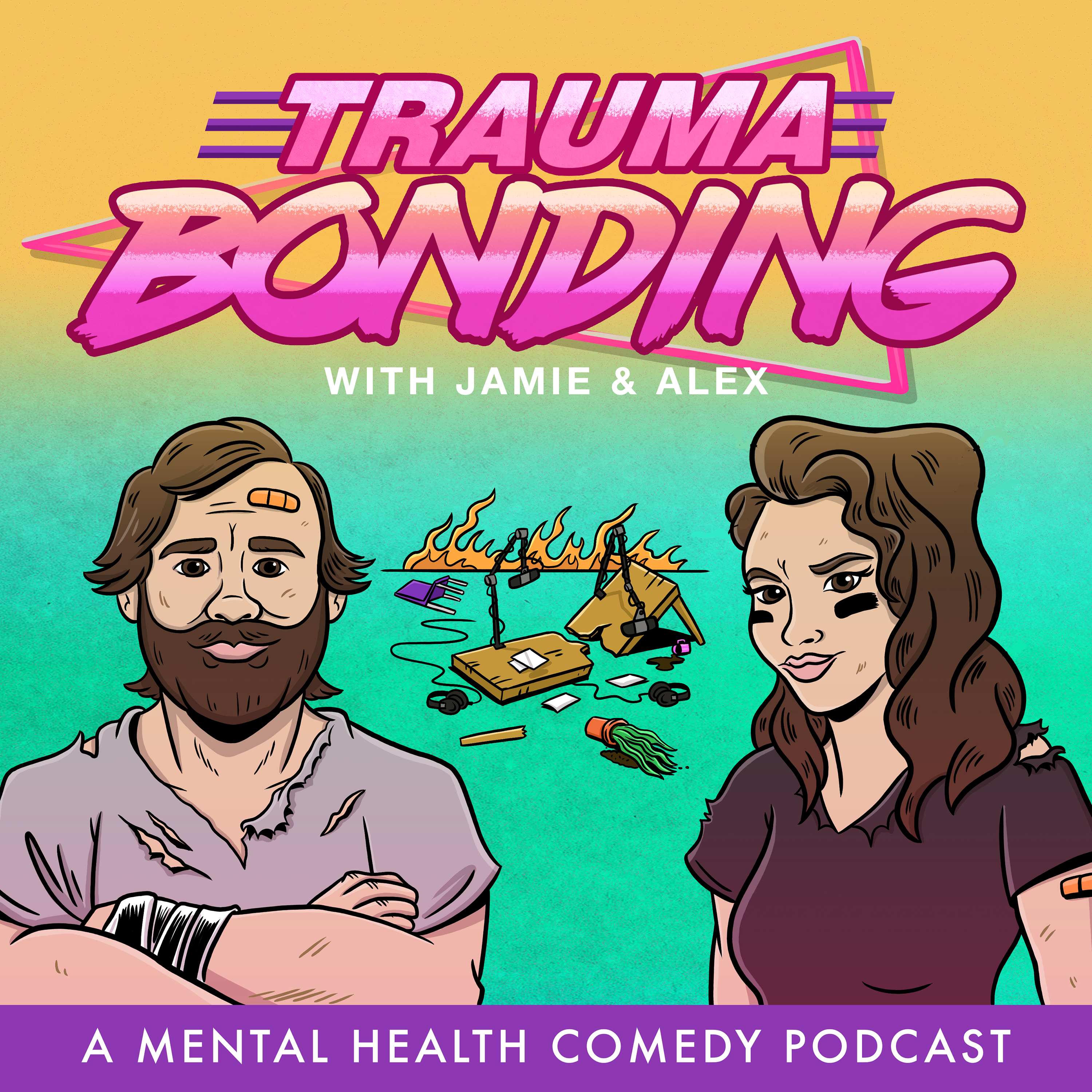
Trauma Bonding
Jamie Kilstein
This Day in History
The HISTORY Channel
The Ben Shapiro Show
The Daily Wire
The Sean Hannity Show
Sean Hannity
Breaking Points with Krystal and Saagar
iHeartPodcasts
The Kyle Kulinski Show
Kyle Kulinski